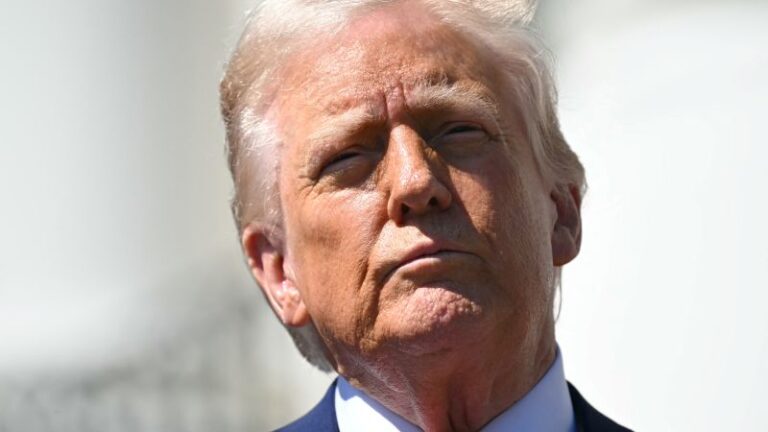Market Volatility: Trump’s Tariffs and Bond Market Reactions
The Impact of Tariffs on Stock Markets
Recent economic decisions, particularly President Donald Trump’s tariffs, have resulted in the loss of trillions of dollars in stock market value. While he maintained a firm stance during the stock market downturn, the scenario shifted when signs of trouble emerged in the bond market.
Contradictory Messages from the President
“MY POLICIES WILL NEVER CHANGE,” Trump asserted as equity markets plummeted. However, just days later, amidst further declines, he announced a 90-day pause on his “reciprocal” tariffs. This sudden change raises questions about his strategy and the underlying reasons for it.
Signs of Trouble in the Bond Market
In a press conference, Trump remarked that the bond market appeared to be getting “queasy.” This observation points toward growing concerns among investors about the stability of the financial markets.
Unprecedented Market Behavior
Typically, a downturn in the stock market prompts investors to seek shelter in “safe haven” assets like Treasuries. However, a peculiar trend emerged late Tuesday into Wednesday, with investors selling both stocks and Treasuries, leading to declines in both markets.
Kathy Yuan, a finance professor at the London School of Economics, noted the rarity of simultaneous negative movements in both sectors. She emphasized the significance of this situation, recalling its last occurrence during the early Covid-19 crisis in 2020.
The Basis Trade and Treasury Sell-Off
One contributing factor to the Treasury sell-off is the unwinding of the “basis trade,” where investors capitalize on the price differentials between Treasuries and Treasury futures. This strategy typically involves substantial borrowing to invest in Treasury bonds, yielding small but frequent profits for hedge funds.
Investor Sentiment and International Relations
More concerning is the apparent reluctance of investors to move towards Treasuries in times of panic. John Canavan, lead US analyst at Oxford Economics, pointed to damaged international relations, suggesting that foreign investors are less inclined to purchase US assets, a reality reflected in recent market behaviors.
